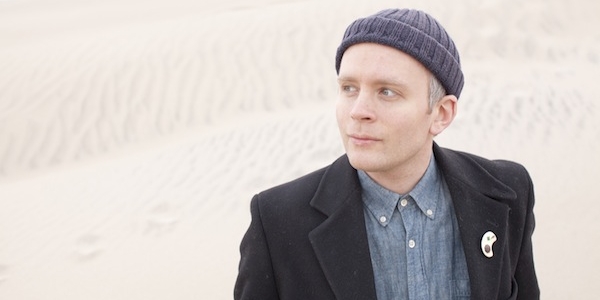The way you might associate French horns with Prokofiev’s wolf, Lekman agrees that the flutes and chimes which are cast across I Know What Love Isn’t may possess certain qualities of feeling in them, but decides it’s a holistic approach to the way he wrote the songs which demonstrates his new process. “I think when I was looking at the album before this one, Night Falls Over Kortedala, I seemed to think that in order to point out ‘Here’s the chorus’, I needed to put as many instruments as possible in there. A song like Sipping On The Sweet Nectar, I think at one point there was like 200 trumpets, in the chorus. And it’s like ‘Do I have enough trumpets? Do they understand that this is the chorus now?’ And I think when I was making this record I started thinking, I don’t really need all that, all I need is something more aerodynamic. To me, a flute for example, sounds like a feather going through the air. It’s going up and down, it’s just riding on the wind. And it is a hopeful sound I think. I think if you’re writing about these subjects it’s nice to contrast that with a sense of hopefulness, in music.”
Lekman solicits little missives, notes or opinions in email form from his blog followers, and explains that the act of replying to emails provides him with lyrical fodder: “It seems like I always have time to reply to all the emails,” he says. “I see it as a writing exercise, in a way, because I write more freely when I… communicate with people in this way. Often I go back to my sent folder of my email program and I just look for certain words or themes and I will find myself expressing myself in a very natural way, and a lot of those communications have become song lyrics. It’s an important thing for me.”
This predilection to engage personally has resulted in uncommon requests or expectations from the press. Lekman often seems asked to do more than just answer questions: he’s making mixtapes or assigning interviews to people or choosing bands to be interviewed. We all want him to get involved, because he’s so open, but he admits it has gone too far at times. “I think when I started doing interviews ten years ago I was… doing interviews! But now, I feel like every two out of three interviews it’s like […] ‘Write about your favourite songs.’ And it feels really lazy. Like journalism has become this thing where they tell you to do their job,” he laughs. “I even had this one journalist get mad at me because I hadn’t spell-checked the text that I wrote.” I write it down: don’t take advantage just because Jens is a good guy.
Lekman believes that those who write to him and come to his shows are “often people who are dreamers”, a reflection of the songwriter himself. On I Know What Love Isn’t Lekman continues the tradition of his unashamedly romantic maxims (‘You don’t learn to get over a broken heart/You just learn to carry it gracefully’) mixed in with sweet humour (‘Bats are sucking on cherries from the trees/Hasn’t anyone told you what your fangs are for, little buddies?’). It’s wrong to mistake Lekman’s gentleness for passivity, though – there’s a definite vein of initiative laced through his ideas. We talk about the golden key which he sometimes wears around his neck and what it signifies, and although it started because Lekman admired the accessory on another musician (“And I thought, that looks nice”), he soon came up with a story. “[People] write to me about, you know, ‘There’s this girl at the grocery store, I really fancy her but I don’t have the guts to talk to her.’ And I wanted to make something, a little object that you can put around your neck and say well, tonight, it’s going to happen, no more waiting. So it’s sort of like the opposite of the abstinence ring or the purity ring, but not in a sexual way; just in general. I’m just against waiting.”
BY ZOË RADAS







